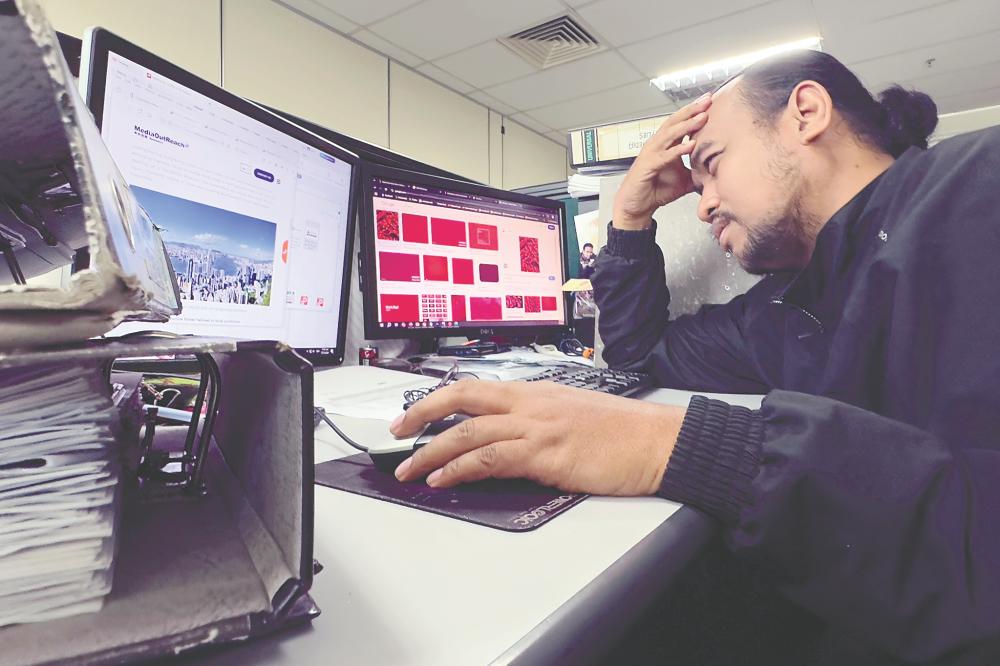PETALING JAYA: With some 67% of Malaysian workers suffering from burnout, a counselling psychologist has urged employers to take proactive steps to maintain a healthy work-life balance, prevent exhaustion and improve overall well-being.
Dr Prem Kumar Shanmugam said employers need to recognise that mental health is a serious issue in the country, and ignoring it could have negative long-term consequences, including reduced productivity and higher staff turnover rate.
“Companies should employ services that support their workers’ mental well-being. Employers are responsible to provide clear progression paths and ensure their workers are happy and motivated, with a structured plan for their growth. This, in turn, enhances retention,” he said.
Prem Kumar was commenting on a report by Employment Hero, titled the “2024 Wellness at Work Report”, which also highlighted that Millennials aged between 28 and 43 are the most affected, with 69% experiencing burnout, followed closely by Gen-Z who are aged between 12 and 27, at 64%.
The biggest contributor to the issue is the difficulty in maintaining a proper work-life balance, with 55% of respondents rating their balance as poor or average.
Prem Kumar said having a strong digital department and an effective employee assistance programme (EAP) is key to significantly improving worker well-being.
He said according to a 2022 work-life balance index study, Malaysia was ranked the world’s third hardest-working country, after Dubai and Hong Kong.
“In 2018 alone, Malaysia lost RM14.46 billion in productivity due to mental health-related challenges in the workplace, which is equivalent to 1% of the country’s gross domestic product.
“Addressing these issues by recognising the problem and raising awareness can help reduce burnout and ultimately benefit the company by saving billions of ringgit,” he said.
Prem Kumar said a significant emotional impact of burnout is draining employees’ motivation and energy, so it is crucial that employers adopt a flexible approach and avoid being too rigid in their approach to work.
“When we talk about burnout, naturally, Malaysians tend to work hard and we often struggle with balancing it with our private lives.
“Even the concept of work-life balance has evolved. Nowadays, when people seek employment, they prioritise things like remote work options, mental health leave, and flexible schedules.
“This shift in priorities highlights how burnout is defined differently from the past.”
He said employers must recognise the current generation entering the workforce has different needs and that the seniority ranking effective for earlier generations is no longer suitable, as the new generation possesses distinct education, skills, and lifestyles.
“We must recognise their strengths and limitations as many companies now prefer hiring younger employees as they bring fresh perspectives, even though they lack experience.
“However, one challenge with the new generation is their time spent on social media, which affects communication skills and makes it harder for individuals to express themselves or seek support.
“Individuals dealing with burnout should communicate, reach out and connect with others.”
Prem Kumar said while the government is already looking into implementing systems such as counselling services and EAP to address the issue, it often lacks the necessary expertise.
He said it should collaborate with companies specialising in these areas when discussing how to improve mental health services.
“It’s important to employ professionals who are specifically trained in these areas. For example, in schools, they sometimes assign a teacher to act as a counsellor after some training, but that’s grossly insufficient.
“If you need a psychologist or a counsellor, you should hire someone who is specifically educated and trained in the field. It is very dangerous for unqualified people to handle sensitive issues like suicide prevention,” he said.
Prem Kumar also suggested teaching about mental health from a young age as it is better to start early rather than only react during a crisis.









